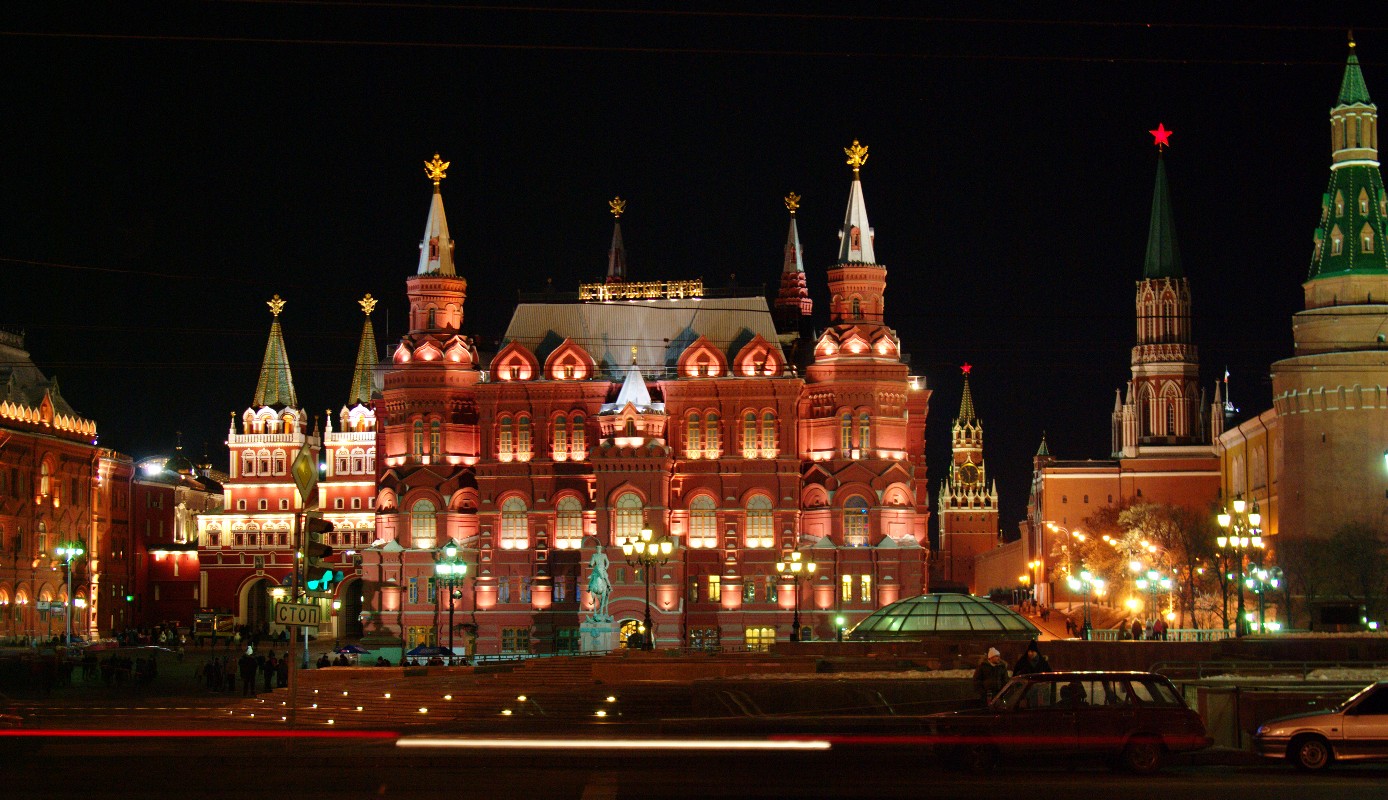

Hardship wrapped in history inside splendour. Churchill's 'riddle wrapped in a mystery inside an enigma' remains an apt description of Russia; most outsiders have only a hazy idea of its realities. A composite of the extravagant glories of old Russia and the drab legacies of the Soviet era, it's a country that both befuddles and beguiles.


Despite the disintegration of its empire, Russia is still huge - stretching from the borders with Estonia, Latvia, Belarus, Ukraine and Turkey in the west, passing Kazakstan, Mongolia and China, to reach the Pacific Ocean some 6000km (3728mi) later. The landscape is predominantly flat, punctuated only by the Urals, which rise no higher than 1900m (6233.5ft), and the more substantial ranges of the Far East. The three major rivers west of the Urals - the Dnieper, Don and Volga - all rise within 400km (249mi) of Moscow and flow south into the Black and Caspian Seas. Siberia, with all its connotations of tundra, steppes, ranges, exile and mindblowing nothingness, begins at the Urals and runs to the Udokan Mountains, just east of Lake Baikal. The Russian Far East is the massive chunk of taiga at the end, including the Sakha Republic and the Kamchatka Peninsula.

Capital: Moscow
President: Dmitry Medvedev
Prime Minister: Vladimir Vladimirovich Putin
Government: federation
Time zone: GMT +3 GMT +2 GMT +4 GMT +5 GMT +8 GMT +10 GMT +12
Area: 17075200
Population: 144530000
People: 81% Russian, 4% Tatar, 3% Ukrainian and numerous ethnic minorities
Languages: Russian is the fourth most widely spoken language in the world. Russian uses the Cyrillic alphabet, which is based on Greek. Russian Orthodox, Islam, Animist, Jewish, Buddhist
Currency: Russian Ruble (R)
Major industries: Oil, coal, iron ore, timber, automotive, agricultural and construction equipment
Major Trading Partners: EU (esp. Germany), Belarus, Ukraine, USA, China
Daylight Saving: From end of March to end of October
Country Dialing Code: 7

There are daily flights to Moscow from all major European capitals and New York, as well as from Hong Kong and other Asian travel centres. There are also daily services to St Petersburg from many European capitals. The main western rail gateways to European Russia are Helsinki, Warsaw, Prague and Budapest. There is a daily service from Paris and Amsterdam to Moscow via Berlin and Warsaw. There's also a service from Berlin to Omsk. The Trans-Siberian Railway runs from Moscow to Vladivostok, and you can get a train from there to Beijing; you can also take the Trans-Mongolian via Ulaan Baatar to Beijing. There are limited cruise and ferry services between Russia and Finland, Norway, Sweden, Germany, Turkey and Georgia.

Aeroflot has been broken up into many small airlines, leading to virtually unregulated skies and the worst regional safety record in the world. Flying within Russia is an unreliable, unpredictable and difficult business. Try to get a seat on a domestic flight that ultimately has an international destination, because these carriers are certified to meet higher standards than domestic-only services. European Russia is crisscrossed by an extensive rail network that makes trains a viable means of getting to practically anywhere. They're cheap and comfortable and usually take a long, long time. The rail network runs on Moscow time; the only general exception is suburban train services, which stick to local time. Russian buses are now completely open to foreigners and when going between small towns are a great way to travel. Driving in Russia isn't everybody's cup of tea but, if you've got a sense of humour, don't mind some fairly rugged road conditions, getting stopped and fined by traffic policemen on the make, a few hassles finding petrol, and getting lost now and then, it's a great way to see the country. River transport remains important and in summer it's possible to travel long distances across Russia on passenger boats. The main passenger services ply between Moscow and St Petersburg, and between Moscow and various points on the Volga and Don, including Yaroslavl, Nizhny Novgorod, Volgograd, Astrakhan and Rostov-on-Don.

Russia's extremes range from the frosts of the Siberian north to the heat of the European south. With no discernable spring or autumn, Russia has a dry continental climate. Siberian summers are surprisingly warm; it's the winters that make regions distinct. So while daytime summer temperatures over the nation may only vary from 20 to 30° C (68-86° F), in winter it is more like 10 to -50° C (51 to -58° F). Major towns like Moscow and St Petersburg share similar pleasant summer temperatures, both averaging around 24° C (75° F). Spring in both cities brings the great thaw, the reappearance of vehicles on the road and a general sense of mayhem.


0 comments:
Speak up your mind
Tell us what you're thinking... !